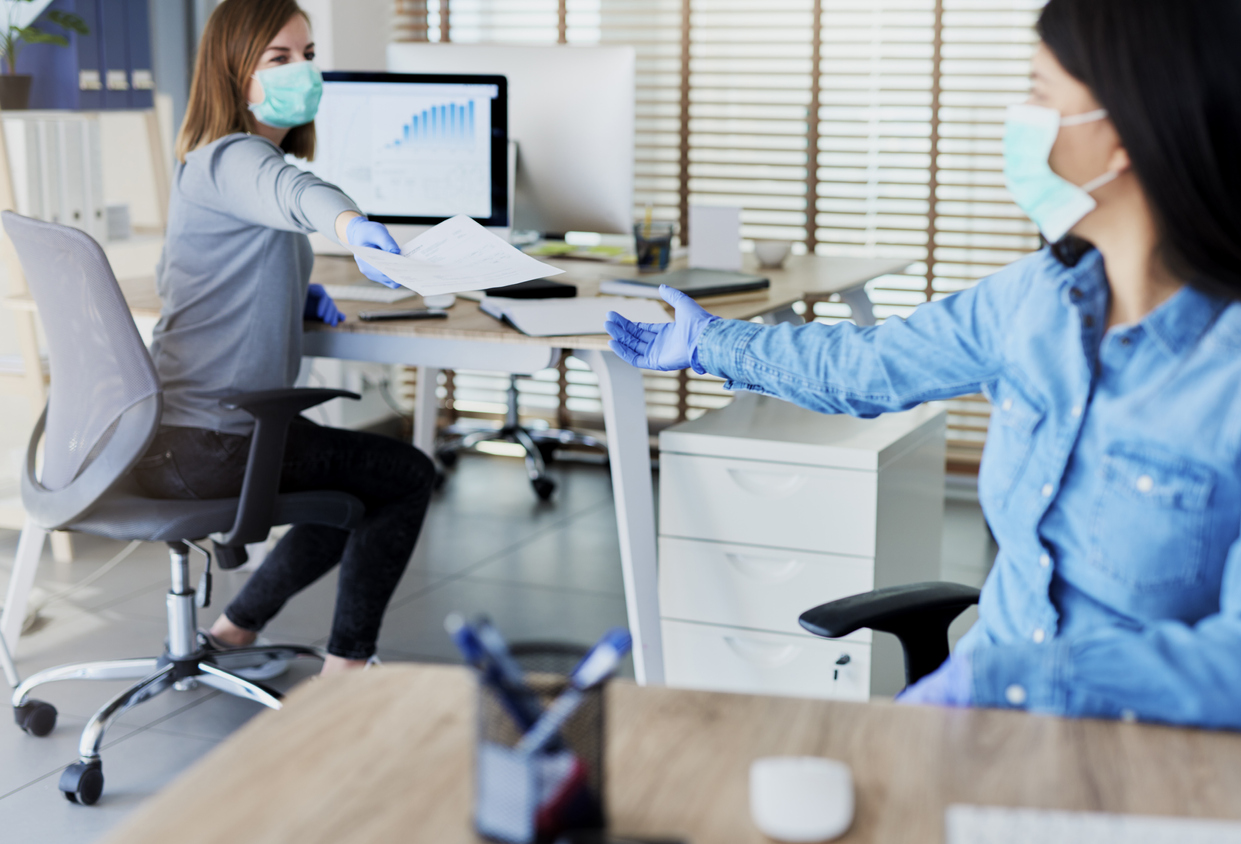Across the U.S., states and local governments are reopening their economies in phases, allowing shoppers to return to stores, restaurants to serve diners in-house, and employees have been able to go back to the office. But with no vaccine in sight and a still-relevant presence of COVID-19 in society, businesses need to be diligent about employee safety in the age of the Coronavirus pandemic.
When it comes to reopening businesses, there needs to be more focus on employee safety training in order to keep employees and the public from transmitting the virus, and for keeping the potential risk for EPLI claims low. From social distancing to sanitizing to implementing stay-at-home orders throughout the company, businesses can benefit from being proactive in combating the spread of COVID-19 among their employees.
Business Insurance Considerations
As employees return to work, employers could end up facing various claims from employees, such as retaliation for taking leave, age and disability discrimination for refusing to accommodate employees who are more at risk for COVID-19-related complications, and discrimination or hostile-work environment claims based on diagnosis. These claims may be covered by EPLI (employment practices liability insurance), which provides protection for defense costs and damages arising from various employment-related wrongful acts.
EPLI insurance policies often exclude coverage for bodily injury. Under an EPLI policy, the company would not have coverage for injuries suffered by employees as a result of contracting the coronavirus.
Maintaining Social Distancing
One step that businesses can take when it comes to limiting risks of COVID-19 is implementing effective social distancing measures. Here’s how:
- First, employee schedules can be staggered or modified to limit the number of workers in the workplace at any given time.
- It’s also important to follow public health guidelines regarding special accommodations and protections for vulnerable or at-risk employees. This could include allowing higher-risk employees to work from home longer than other employees.
- Businesses can also reconfigure their space or create barriers to ensure people are working at least six feet away from each other.
- For more tips, OSHA has laid out helpful social distancing guidelines.
Wearing Masks and Cleaning
Certain states and local municipalities are still requiring their citizens and employees to wear face masks when out in public or at work. While cloth face coverings protect others from exposure to the wearer, they are not meant to be a replacement for industry-specific required respirators and personal protective equipment (PPE). Businesses can set their own guidelines by making it mandatory that employees wear masks while on company property and while serving customers.
When it comes to cleaning, taking extra precautions is important no matter the industry or type of business. Restaurants, naturally, need to be more diligent about disinfecting and cleaning their dining rooms, kitchens, and bathrooms, but other types of businesses, like retail stores and gyms, should be setting up cleaning schedules to make sure all surfaces are cleaned regularly throughout the day.
If an employee has tested positive for COVID-19 or is presumed to be positive, or even showing symptoms of the virus, they should be sent home and their work area should be cleaned and disinfected immediately.
Daily Health Screenings
Conducting daily in-person or virtual health checks for employees is optional for businesses, according to the CDC. But businesses should seriously consider conducting these for all employees that enter the worksite as they can help to find potential risks and hazards.
Companies can use no-touch thermometers for temperature checks and develop a plan in the event an employee develops symptoms while in the workplace, tests positive for COVID-19, or is deemed to be presumptively positive by a public health authority.
A Culture Change
Business is not business as usual. Companies in all industries need to create a culture of awareness and support among their employees in order to keep everyone as safe and protected as possible. First, it’s important to acknowledge family needs, job security, finances, and daily disruptions that may end up causing stress and anxiety among employees. Businesses should also ensure employees are aware of resources, including specific services offered by employee assistance programs, wellness programs, or health plans.
About Axis Insurance
At Axis Insurance Services, we aim to help our customers identify their exposures and protect themselves. Founded in 1999, we offer insurance programs to a wide variety of professionals and industries including attorneys, real estate, healthcare, architects, and more, and also have a wholesale division. We pride ourselves on offering flexible insurance coverage tailored specifically to each customer’s needs. To learn more about our solutions, contact us at (877) 787-5258 to speak with one of our professionals.


